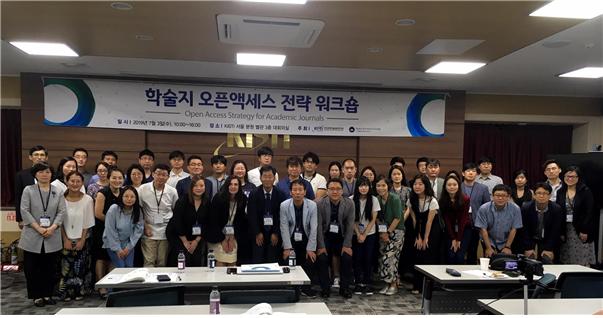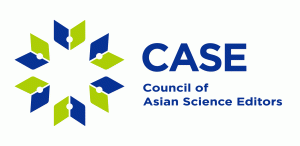Workshop for open access strategy for academic journals
Author : Geun Cheol Park
Docuhut Co., Ltd., Seoul, Korea
Time and date: 10:00~16:00, July 3, 2019
Organizer: Korea Institute of Science and Technology Information (KISTI), Taylor & Francis Group(T&F)
Venue: Conference room, Seoul office, KISTI, Seoul, Korea
Scientists and scholars’ willingness to share the fruits of their research and technology, the internet, have been making the public good possible, which is the world-wide distribution of academic journal articles and completely free and unrestricted access to them by everyone and anyone.
Since the Budapest Open Access Initiative in 2001, the technical barriers against Open Access have been removed by the development of technology, such as, anytime anywhere internet accessible mobile device, search engine, wireless network, real-time translation and so on.
Open Access enhances impact of research as articles reach broader audiences and they are viewed and cited sooner and more than non-Open Access articles. On the other hand, Open Access journals tend to have less reputation than traditional journals yet and predatory Open Access journals try to deceive scientists and scholars.
Open Access means that readers do not pay cost; however, no one can publish articles without cost. This workshop has been very interesting because it is co-organized by a government agency, KISTI, which supports Open Access policy for the academic journals in Korea, and a commercial publisher, Taylor & Francis Group, which monetizes journals; thus, we could approach the recent academic publishing trend with different point of view.
Taylor & Francis Group covers publishing cost of Open Access articles with APC(article processing charge) model, Society and Association Partner model and so on. Authors or their funders pay for the APC. The societies or associations pay for the processing cost or subsidize partly.
KISTI provides scholarly publishing platform for academic journals which covers full-life cycle such as editorial management, production, publication, preservation, and promotion.
The other subject of this workshop is data sharing. Open science is the movement to make scientific research, including publications, data, physical samples, and software, and its dissemination accessible to all levels of an inquiring society, amateur or professional. Data sharing is substantial for open science which seems to be inevitable flow to all researchers, editors, publishers, government agencies, and all affiliated workers. We need to prepare the technology, systems, and laws.
One of the audiences pointed out as follows;
The libraries in Korea pay KRW 160 billion a year for academic journal subscriptions and the number of articles written by Korean authors and published by foreign publishers are approximately 80,000. All the articles could be Open Access with the budget, KRW 160 billion a year.
References
Budapest Open Access Initiative 2001 : https://www.budapestopenaccessinitiative.org/
Dai, Q., E. Shin and C. Smith (2018), “Open and inclusive collaboration in science: A framework”, OECD Science, Technology and Industry Working Papers, 2018/07, OECD Publishing, Paris. http://dx.doi.org/10.1787/2dbff737-en
 Fig. 1. Group photo of the workshop for open access strategy for academic journals
Fig. 1. Group photo of the workshop for open access strategy for academic journals
